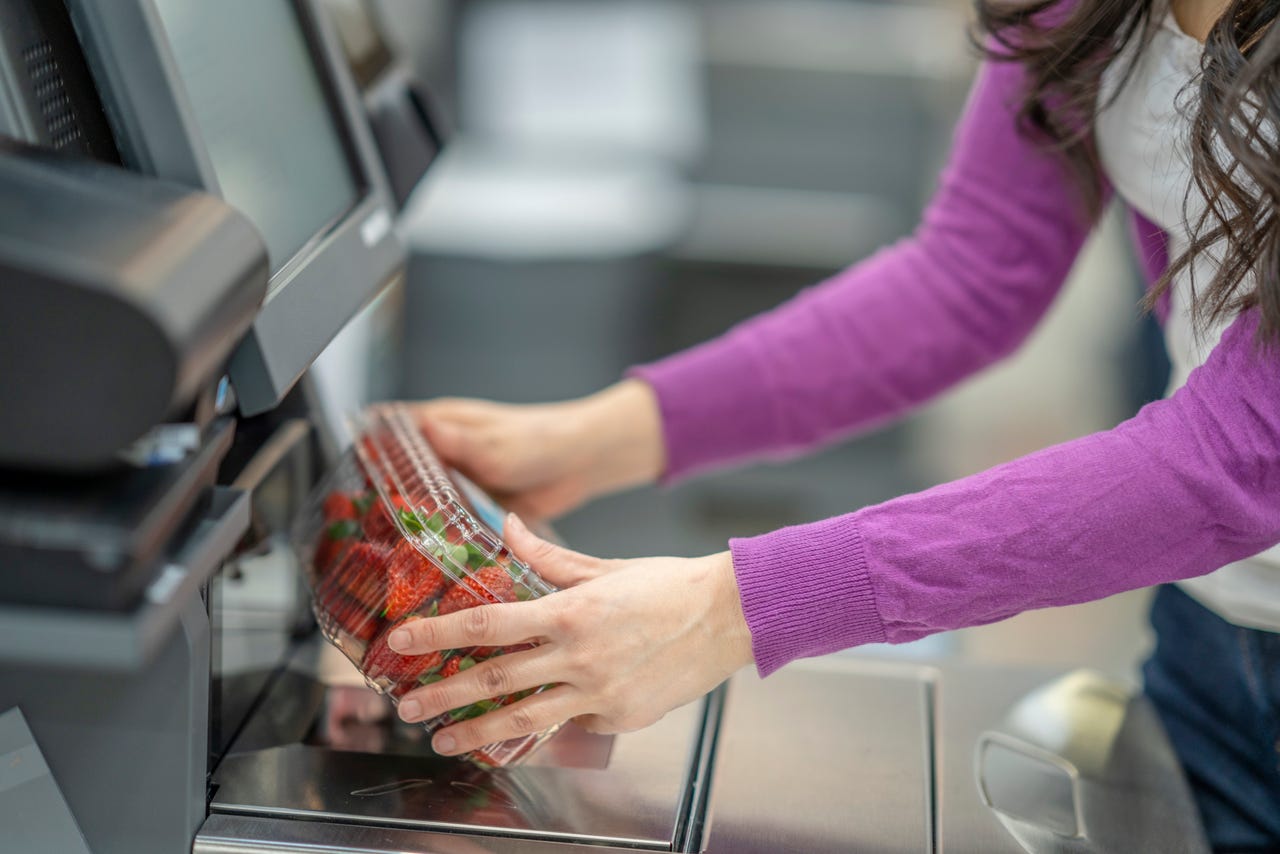Supermarkets are taking laughable steps to stop self-checkout theft (customers hate it)


Careful, now.
Sometimes, I don't realize how strong people's feelings are until I write about a seemingly innocuous subject.
more Technically Incorrect
Like the deficiencies of Apple, for example.
I was truly startled, however, at how strongly (some) people feel about supermarket self-checkout.
Recently, I wrote about some humans' aversion to anything but a human scanning their groceries and perhaps even bagging them.
I was moved by a picture of 20 people standing in line to check out, with empty self-checkouts staring them in the face.
Many people responded with committed views. These weren't age-biased. They were simply subjective.
Also: The #1 way AI is transforming grocery shopping
We're trying to save money, but you're taking advantage
No sooner, though, had I listened to the conflicting views that I learned the very well-regarded supermarket chain Wegmans was shutting down its self-checkout option.
This was a relatively sophisticated affair. Customers could download an app, scan their items as they took them from the shelves, and then scan a barcode at self-checkout for their total and to pay.
What could possibly have gone wrong? Well, according to the New York Times, too many customers pilfered items. Or as Wegmans put it: "Unfortunately, the losses we are experiencing prevent us from continuing to make it available in its current state."
Well, I never. Aren't people terrible?
It seems, though, that the more traditional self-checkout lanes don't undergo such great losses -- as long as there's a supermarket employee there to "help" customers. You know, just in case.
But Wegmans isn't the only store to halt its more advanced just scan-and-go service. Amazon Fresh has too, though the company cited "disappointing sales."
It's tempting, then, to conclude that self-checkout is a technology with deep imperfections.
Also: How to cut your grocery bill by shopping online
Trust me, this is silly
Then I heard of another solution -- of a sort -- for self-checkout theft. It appears that some supermarkets in Australia have resorted to sheer annoyance. Of its customers, that is.
A posting to the Meanwhile In Australia Facebook page revealed that these Australian supermarkets have stationed employees to check the receipts of those who self-checkout.
The poster mused: "You can either trust me to do self-checkout, or you can put your cashiers back in place like it used to be."
Some may observe there's a certain truth to this. Self-checkout is precisely about trust. If you don't trust your customers, don't have the machines.
This particular angry customer says they waved the receipt above their heads and carried on right toward the exit.
They put their thoughts like this: "I'm not interested in proving that I did your job for you. You want me to be a cashier with no training then that's your problem not mine. Don't Audit me for a position you refuse to employ any longer."
Also: How to create a grocery budget
Theft. It's a guilt-edged sword
I continued to wonder why, though, people might steal in larger amounts from self-checkouts.
Every time I went to my local supermarket, I watched to see whether self-checkout was becoming less or more popular. I even looked, once or twice, to see if they were scanning their fruit properly and honestly. (Yes, I felt shame.)
But then along came Professor Shadd Maruna of Queen's University, Belfast. He offered that this is all about our inner feelings toward technology.
"Most of us feel ashamed at getting caught by a fellow human trying to steal something," Maruna was quoted as saying in the Sun. "Removing the human eyes and replacing them with technology makes the process seem less shameful."
It's persuasive, in its way. Painful for the tech industry, too.
Could it be that there's still some tinge of humanity in many people, one that respects the morals and feelings of other humans?
Whereas technology? It's just a machine, isn't it? It has no feelings, so why should the thief?
Also: AI can be creative, ethical when applied humanly
Please, I don't condone pinching things from anonymous machines. Although I do wonder whether internet scammers would feel anything if they actually met the people whom they so regularly and cynically dupe.
Some, though, theorize that there are people who believe the machines are taking away human jobs, so stealing from them is a certain sort of payback.
Others even tell themselves that, well, if they have to do the work themselves, there should at least be a little tip for them.
Clearly, this isn't the end of the technology. It may, though, require something of a rebalancing between the cost of the technology itself, and the losses that might be incurred.
I can only imagine the scene one day soon. Someone is scanning a cheap item, while slipping a more expensive one into their paper bag.
Suddenly the machine pipes up: "I can see you, you know. Don't you feel ever so slightly ashamed?"